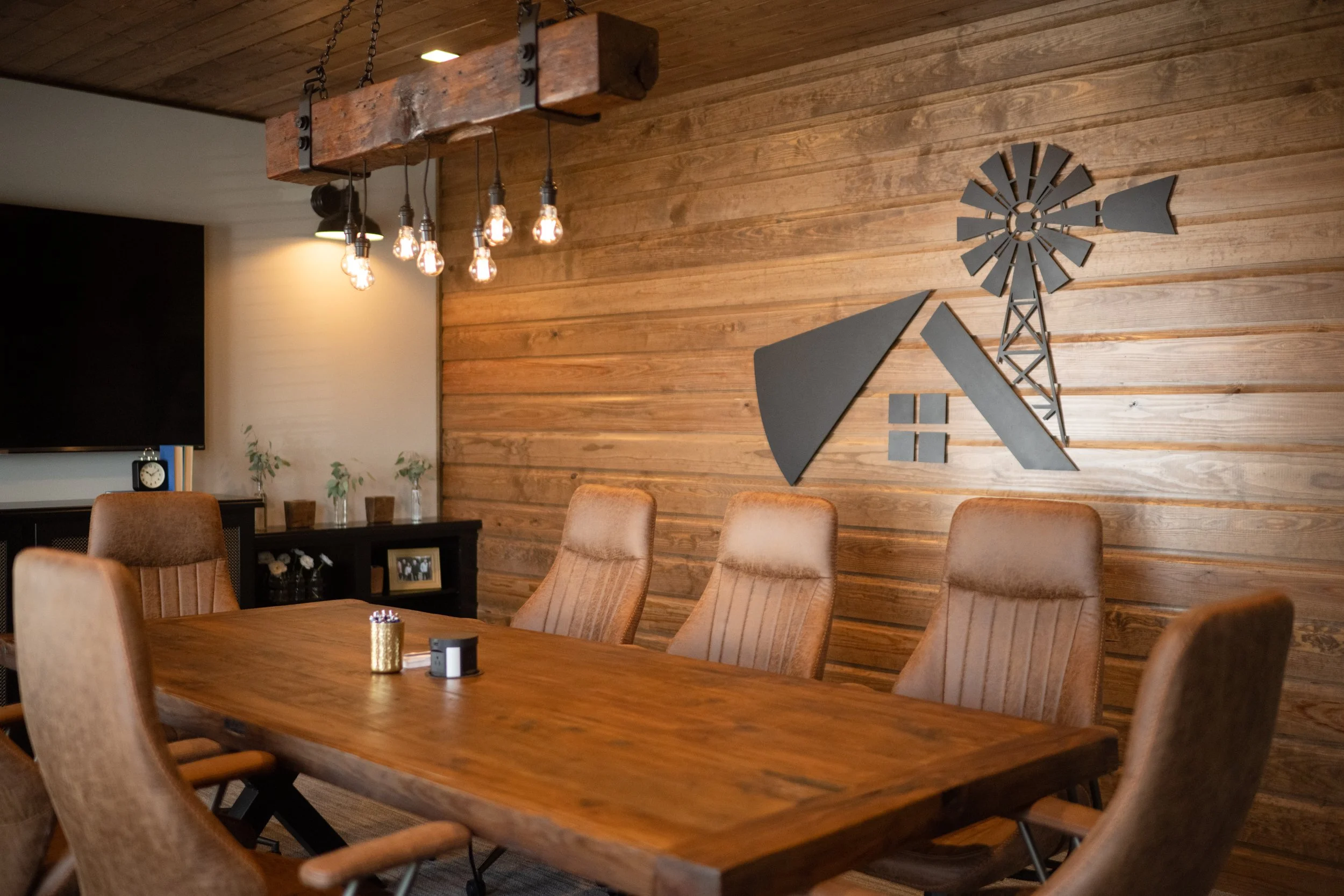How to Find an Assisted Living Near You
Are you looking for an assisted living community near you and having difficulty finding an option that fits your needs?
Deciding to move a loved one into an assisted living community is a highly challenging and stressful time for a family. The vast number and types of assisted living options can leave you feeling frustrated and overwhelmed.
Rest assured, you’re not alone.
With 70% of people requiring assisted living care in their lifetime, more than 800,000 people living in assisted living communities, and nearly 30,000 assisted living communities in the United States, the need for long-term care has grown and will continue to grow.
Make sure you start your search as soon as you suspect a loved one may need assisted living.
These are some signs that your loved one may need help:
Inability to handle daily tasks, like laundry or housekeeping
Inability to maintain hygiene
Incontinence
Frequent falls
An increase in chronic health conditions
Feelings of isolation or depression
Begin by having a heart-to-heart with your senior about the need for assistance and why you feel it’s necessary. Show empathy and be prepared for pushback, anger, or frustration.
Assure them they will be involved in the process and their needs and preferences are of the utmost importance.
Locating an assisted living community that fits the needs of both your family and loved one is time intensive. There is a large amount of information to process and understand.
Finding the best assisted living community near you may seem daunting, but a little knowledge, research, and planning can help you find the best option for your family.
What Is Assisted Living?
Assisted living is long-term care designed for seniors who need help with daily living activities (ADLs), such as bathing, dressing, cooking, or laundry.
Seniors typically enjoy having greater independence, a sense of community, and the activities provided by assisted living.
Unlike nursing homes which offer services for seniors who require full-time monitoring and medical care, assisted living communities are perfect for seniors who are, for the most part, independent but are no longer capable of living alone.
Assisted living communities offer a range of amenities and services depending on the community and location.
Amenities and services may include:
Prepared meals
On-site or on-call nursing staff
Weekly housekeeping
Weekly laundry services
Exercise and wellness programs
Scheduled transportation
Activities and social events
Exercise facilities
Medicine management
Beauty salons and barbershops
Pools or spas
Determining which services you need will depend on the level of care required for your loved one and their interests.
Some communities may offer specialized care for residents who need additional attention for minor physical disabilities or memory care.
If you need additional information or suspect your loved one may need help with memory care, check out this informative resource by Remember Me Senior Care.
As you can see, there is truly something out there for every senior.
There are many benefits to assisted living for both families and seniors:
Peace of mind knowing that your loved one is safe and well taken care of
Consistent help with personal care and laundry
24-hour medical care and prescription management
Nutritious meals
Complimentary transportation services
A focus on senior wellness, intellectual stimulation, and social connection
Learn more about the wellness and activities at Remember Me Senior Care by watching this video.
The Cost of Assisted Living Near You
The monthly cost of assisted living can range anywhere from $2000-$7000, depending on your city and state and the accommodations provided at the community.
Genworth’s helpful search tool is a great place to get an idea of the average monthly cost for your specific area.
For many families, the cost of assisted living is a critical factor in choosing an assisted living community. Assisted living can be expensive, and it’s essential to understand the associated costs.
Location is just one of the factors that can affect your overall cost. Other factors that will affect cost are:
Level of Care Required
Most assisted living communities will assess new residents to determine the amount of assistance required for activities of daily living (ADLs). ADLs include but are not limited to bathing, meal preparation, dressing, and medication management. These costs can increase depending on the amount of help a resident needs for their daily care.
Accommodation Selection
Assisted living communities offer residents a variety of different housing types, so everyone is able to find the perfect fit for their lifestyle. Depending on the community, residents can choose between studio, one or two-bedroom living spaces.
Some communities offer luxurious options with a variety of sizes, floor plans, and living styles. However, others may offer unique and non-traditional living arrangements.
Check out the beautiful farmhouse-style living offered by Remember Me Senior Care.
Your choice of more extensive floor plans will increase your cost. Have a candid discussion with your loved one about what amenities, services, or other factors are most important to them.
Cost Structure
Make sure you understand the cost structure of each assisted living community you visit.
Review available cost structures. Determine which one best meets the needs of your family.
Some communities charge on an all-inclusive structure: an agreed-on monthly fee that includes rent, daily care, and other essentials. This structure is typically set for a specific period.
Other communities may use an a la carte pricing structure: separate charges for specific services needed. Services can typically be added or removed as your needs change.
Make sure you ask these questions about each facility’s cost structure:
Do you require a deposit? Is it refundable?
What services are included in my monthly fee?
What services are billed separately?
What are your billing policies?
Do you offer any financial assistance programs?
Is there a cost if we terminate our contract early?
Paying for Assisted Living
Figuring out how to pay for assisted living is another big concern for most families. There are many options to help with the cost of assisted living.
Do your research to understand everything available to help you save on assisted living costs.
Remember paying out of pocket is just one option for covering these costs. There are many avenues to help with assisted living expenses.
Medicare and Medicaid
Medicare doesn’t cover long-term care, but it will cover medical expenses incurred in an assisted living facility.
Medicaid will cover assisted living expenses for qualified individuals. Medicaid coverage can vary between different states. Be sure to check your state’s Medicaid policies.
Check with the financial office at your assisted living community for information on your state’s Medicaid coverage.
Long-Term Care Insurance
If your loved one has a long-term insurance policy, you’re in luck. This type of policy usually covers the cost of assisted living. Be sure to carefully review the coverage and exclusions and speak with your insurance carrier about any questions.
Life Insurance Policy
Although most of us think of a life insurance policy as a death benefit, in some cases, it may make sense to cash in a life insurance policy to help pay for assisted living expenses. Make sure you consider the pros and cons before deciding to cash out a life insurance policy.
The Department of Veteran Affairs (VA)
If your loved one is a veteran or the spouse of a veteran, federal benefits may be an option. The VA Aid and Attendance benefit supplements VA pensions that may provide monthly payments for veterans who need additional help with daily activities or assisted living expenses.
Reverse Mortgages
A reverse mortgage is a loan that a homeowner takes out against the value of their home. The homeowner must be married, and the spouse must remain in the home. The homeowner can receive payment in a lump sum, monthly installments, or as a line of credit.
Choosing Assisted Living Near You
Now that you have a better understanding of assisted living, it’s time to start looking for the perfect community for your loved one.
It’s essential to make sure that your senior is involved in this process. Moving into assisted living can be stressful and upsetting to your loved one, especially if they’re not sure it’s time.
Make sure you tour several assisted living communities. Different communities can vary when it comes to amenities, level of care, cultures, and social settings.
Start by making a list of assisted living communities in your area. Family, friends, co-workers, neighbors, and your family physician are great trusted resources for recommendations.
A quick “assisted living near me” google search is a great place to find communities in your area. Google reviews are a must for getting feedback from residents and their families.
Set up an in-person tour of each community. If Covid restrictions prohibit in-person tours, request a virtual tour.
Although virtual tours are often helpful, an in-person tour will allow you to get a feel for how the community runs daily, how the staff interacts with the residents, and if the residents appear happy and active.
During your tour, take note of the following details:
Cleanliness of living spaces, common areas, courtyards, and bathrooms
Services and amenities like pools, fitness centers, game rooms, and social activities
Safety features like ramps, grab bars, and guard rails
Aesthetics, Are the common areas bright and cheery? Is the furniture comfortable and inviting?
If possible, ask if you can eat lunch or dinner during your visit---this is a great way to assess the quality of the food and observe the residents in a relaxed setting.
Make sure you ask lots of questions during your visit.
Questions related to the staff:
What training and experience does the staff have?
Are background checks performed?
What is your turnover rate?
Do you have a registered nurse? Are they available 24/7 or on-call?
What are your Covid protocols for staff?
What is your staff-to-resident ratio?
Questions related to the community:
What types of living spaces are currently available?
Can residents bring their furniture?
Are pets allowed?
Is house cleaning and laundry included in my monthly fee? If not, what are the fees?
What security systems are in place?
What are your emergency procedures?
How many meals are provided per day?
How do you handle dietary restrictions?
Are there set times for meals?
What are your on-site medical options?
Take note of the overall feel of the community. Does this feel like a place where your loved one will feel comfortable? Are there activities that match their interests? If possible, you should tour the community together.
If your loved one doesn’t feel it’s a good fit, keep looking.
Helping Your Senior Transition to Assisted Living
Congratulations, you’ve found an assisted living community that your family and senior agree on!
Take a deep breath and begin preparing your loved one for the move and the start of an exciting new chapter.
They may feel regret about leaving their home. Don’t be surprised by your feelings of sadness, especially if the transition involves selling your childhood home.
Make sure you continue to acknowledge, respect, and address their feelings and concerns. Empower them to make decisions before, during, and after the move.
Make sure they are involved in the furnishing, paint colors, and decor of their new home.
Here are some additional tips to ensure a smooth transition:
Enlist family and friends or hire experts to help with packing and moving
Decorate their new living space with family photos
Don’t forget personal items, like medication, books, laptops, and phones
Celebrate with your loved one’s best friends, pass out cards with their new address
Be optimistic and happy
Visit often!!
Wrap up and Next Steps
Although finding assisted living near you may be stressful and time-consuming, with some strategic planning, research, and much patience, you can find an assisted living community that will meet the needs of your family and your loved one.
Need more information? Download this free guide for more information on assisted living communities in your area.


